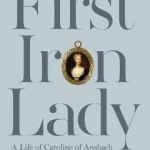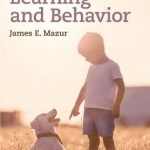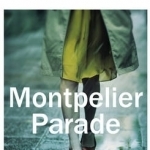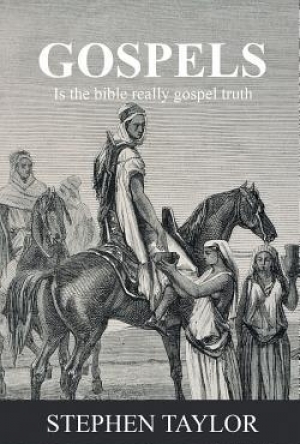Search

Full House Casino Jackpot Slot
Games
App
No Deposit! Vegas Classic Style Scatter Slot Machines With Baccarat! Bingo! Blackjack! Lottery!...
Hazel (1853 KP) rated Montpelier Parade in Books
May 24, 2017
Sylvia Plath-esque
I received this book for free through Goodreads First Reads.
Set in the not-so-distant-past in Dublin, Ireland lives Sonny, a schoolboy with not much hope of succeeding in life. Living on the poverty line, Sonny has no choice but to work at a butcher’s shop after school, and with his gambling father, a builder, at the weekend. On one such occasion, whilst working on a posh house on Montpelier Parade, Sonny meets the enigmatic Vera, whose beauty leaves him speechless. It only takes another encounter, and Sonny is infatuated with this elusive lady.
Montpelier Parade is a melancholy love story, describing the dangerous relationship between Sonny and Vera. Not only is it wrong for schoolchild and adult to have such an intimate connection, Sonny finds himself powerless to deal with Vera’s depression. Vera’s Sylvia Plath-esque demeanour results in events that go above and beyond what an adolescent boy ought to be dealing with – especially as he has his own problems, too.
Karl Geary has written this novel in the second person, placing the reader directly into Sonny’s position. “You say,” “She turned and looked at you.” – we, as the reader, become Sonny. This makes it easier to imagine the hardships he is facing at school, at home, and with Vera. We imagine ourselves in his position, thus making everything feel so real.
Montpelier Parade is not an easy book to read. Depression and suicide are very delicate topics to deal with. Combine that with underage sexual relationships with an adult, and you have got a particularly uncomfortable journey ahead. Then, to top it all off, the narrative is riddled with foul language.
A comparison with wealth and poverty, life and death, and love, Montpelier Parade will attract many readers. Sadly, the story was a bit too crude for myself to enjoy. That said, I can understand why many will enjoy it, or even relate to it, however be aware, it is quite a serious, dark story.
Set in the not-so-distant-past in Dublin, Ireland lives Sonny, a schoolboy with not much hope of succeeding in life. Living on the poverty line, Sonny has no choice but to work at a butcher’s shop after school, and with his gambling father, a builder, at the weekend. On one such occasion, whilst working on a posh house on Montpelier Parade, Sonny meets the enigmatic Vera, whose beauty leaves him speechless. It only takes another encounter, and Sonny is infatuated with this elusive lady.
Montpelier Parade is a melancholy love story, describing the dangerous relationship between Sonny and Vera. Not only is it wrong for schoolchild and adult to have such an intimate connection, Sonny finds himself powerless to deal with Vera’s depression. Vera’s Sylvia Plath-esque demeanour results in events that go above and beyond what an adolescent boy ought to be dealing with – especially as he has his own problems, too.
Karl Geary has written this novel in the second person, placing the reader directly into Sonny’s position. “You say,” “She turned and looked at you.” – we, as the reader, become Sonny. This makes it easier to imagine the hardships he is facing at school, at home, and with Vera. We imagine ourselves in his position, thus making everything feel so real.
Montpelier Parade is not an easy book to read. Depression and suicide are very delicate topics to deal with. Combine that with underage sexual relationships with an adult, and you have got a particularly uncomfortable journey ahead. Then, to top it all off, the narrative is riddled with foul language.
A comparison with wealth and poverty, life and death, and love, Montpelier Parade will attract many readers. Sadly, the story was a bit too crude for myself to enjoy. That said, I can understand why many will enjoy it, or even relate to it, however be aware, it is quite a serious, dark story.
Hazel (1853 KP) rated Montpelier Parade in Books
Dec 7, 2018
<i>I received this book for free through Goodreads First Reads.</i>
Set in the not-so-distant-past in Dublin, Ireland lives Sonny, a schoolboy with not much hope of succeeding in life. Living on the poverty line, Sonny has no choice but to work at a butcher’s shop after school, and with his gambling father, a builder, at the weekend. On one such occasion, whilst working on a posh house on Montpelier Parade, Sonny meets the enigmatic Vera, whose beauty leaves him speechless. It only takes another encounter, and Sonny is infatuated with this elusive lady.
<i>Montpelier Parade</i> is a melancholy love story, describing the dangerous relationship between Sonny and Vera. Not only is it wrong for schoolchild and adult to have such an intimate connection, Sonny finds himself powerless to deal with Vera’s depression. Vera’s Sylvia Plath-esque demeanor results in events that go above and beyond what an adolescent boy ought to be dealing with – especially as he has his own problems, too.
Karl Geary has written this novel in the second person, placing the reader directly into Sonny’s position. “You say,” “She turned and looked at you.” – we, as the reader, become Sonny. This makes it easier to imagine the hardships he is facing at school, at home, and with Vera. We imagine ourselves in his position, thus making everything feel so real.
<i>Montpelier Parade</i> is not an easy book to read. Depression and suicide are very delicate topics to deal with. Combine that with underage sexual relationships with an adult, and you have got a particularly uncomfortable journey ahead. Then, to top it all off, the narrative is riddled with foul language.
A comparison with wealth and poverty, life and death, and love, <i>Montpelier Parade</i> will attract many readers. Sadly, the story was a bit too crude for myself to enjoy. That said, I can understand why many will enjoy it, or even relate to it, however be aware, it is quite a serious, dark story.
Set in the not-so-distant-past in Dublin, Ireland lives Sonny, a schoolboy with not much hope of succeeding in life. Living on the poverty line, Sonny has no choice but to work at a butcher’s shop after school, and with his gambling father, a builder, at the weekend. On one such occasion, whilst working on a posh house on Montpelier Parade, Sonny meets the enigmatic Vera, whose beauty leaves him speechless. It only takes another encounter, and Sonny is infatuated with this elusive lady.
<i>Montpelier Parade</i> is a melancholy love story, describing the dangerous relationship between Sonny and Vera. Not only is it wrong for schoolchild and adult to have such an intimate connection, Sonny finds himself powerless to deal with Vera’s depression. Vera’s Sylvia Plath-esque demeanor results in events that go above and beyond what an adolescent boy ought to be dealing with – especially as he has his own problems, too.
Karl Geary has written this novel in the second person, placing the reader directly into Sonny’s position. “You say,” “She turned and looked at you.” – we, as the reader, become Sonny. This makes it easier to imagine the hardships he is facing at school, at home, and with Vera. We imagine ourselves in his position, thus making everything feel so real.
<i>Montpelier Parade</i> is not an easy book to read. Depression and suicide are very delicate topics to deal with. Combine that with underage sexual relationships with an adult, and you have got a particularly uncomfortable journey ahead. Then, to top it all off, the narrative is riddled with foul language.
A comparison with wealth and poverty, life and death, and love, <i>Montpelier Parade</i> will attract many readers. Sadly, the story was a bit too crude for myself to enjoy. That said, I can understand why many will enjoy it, or even relate to it, however be aware, it is quite a serious, dark story.

The First Iron Lady: A Life of Caroline of Ansbach
Book
Often compared to Catherine the Great or Elizabeth I, Caroline of Ansbach is the great queen Britain...

Solomon and Marion
Book
Winner of the Fleur Du Cap Award for Best New South African Play Over the years, Marion has watched...

Learning & Behavior
Book
This book reviews how people and animals learn and how their behaviors are changed as a result of...
Merissa (13749 KP) rated Lynx (Wild Wolves MC #1) in Books
Sep 25, 2025
LYNX is the first book in the Wild Wolves MC series, set in the East Midlands, UK, which was my old stomping ground. I can't tell you how happy I was to read something set there, even if it is a fictional place.
Annabelle Jacobs writes brilliant British Urban Fantasy, and this one is no different. In a world where humans don't know about shifters, the pack came together as a group of outcasts and misfits, using the MC as a cover. Morgan is as human as they come, but his life changes in almost unrecognisable ways, starting off with his dad losing their home to gambling. Think of a snowball mixed in with personal choices, and you will see how it gets bigger as it rolls downhill.
I loved the relationship between Lynx and Morgan, and then between the two of them individually and the rest of the pack. This isn't a warm and fuzzy book, but it isn't unnecessary angst either. Everything that is in here is for a reason, and I was completely hooked with every word.
Although the time it is set in is quite fast, I found the pacing to be perfect, giving time with the pack, Morgan, and Lynx in between the action. It was a mix of dark (fight rings), emotional (Lynx and Morgan, Morgan and Luke, etc.), and funny (comments between the pack members), so if that's what you enjoy, I think you will love this.
There are a couple of possible couples that I'm hoping for, together with characters I want to find love, and I honestly can't wait for the next book, no matter who it features. Another fantastic world to lose myself in. Absolutely brilliant and HIGHLY RECOMMENDED by me.
** Same worded review will appear elsewhere. **
* A copy of this book was provided to me with no requirements for a review. I voluntarily read this book; the comments here are my honest opinion. *
Merissa
Archaeolibrarian - I Dig Good Books!
Sep 25, 2025
Annabelle Jacobs writes brilliant British Urban Fantasy, and this one is no different. In a world where humans don't know about shifters, the pack came together as a group of outcasts and misfits, using the MC as a cover. Morgan is as human as they come, but his life changes in almost unrecognisable ways, starting off with his dad losing their home to gambling. Think of a snowball mixed in with personal choices, and you will see how it gets bigger as it rolls downhill.
I loved the relationship between Lynx and Morgan, and then between the two of them individually and the rest of the pack. This isn't a warm and fuzzy book, but it isn't unnecessary angst either. Everything that is in here is for a reason, and I was completely hooked with every word.
Although the time it is set in is quite fast, I found the pacing to be perfect, giving time with the pack, Morgan, and Lynx in between the action. It was a mix of dark (fight rings), emotional (Lynx and Morgan, Morgan and Luke, etc.), and funny (comments between the pack members), so if that's what you enjoy, I think you will love this.
There are a couple of possible couples that I'm hoping for, together with characters I want to find love, and I honestly can't wait for the next book, no matter who it features. Another fantastic world to lose myself in. Absolutely brilliant and HIGHLY RECOMMENDED by me.
** Same worded review will appear elsewhere. **
* A copy of this book was provided to me with no requirements for a review. I voluntarily read this book; the comments here are my honest opinion. *
Merissa
Archaeolibrarian - I Dig Good Books!
Sep 25, 2025
Adventure and Redemption
I received this book for free through Goodreads First Reads.
Is the Bible really gospel truth? This is the question the honourable, academic Robert Babcock aims to find out on his quest to find the earliest copies of the gospels in order to prove the reliability of the story of Jesus as recounted in the King James Bible. However, this is not the key focus of Stephen Taylor’s fictional novel, Gospels. The main character is the perfidious John Campbell-John, a rogue, imposter and swindler who flees 19th-century England in an attempt to escape from his debts.
John meets the magnanimous Robert in Venice and, despite being polar opposites, become firm friends. After being honest for the first time in his life, admitting to owing thousands of pounds in gambling debts, Robert offers John the opportunity to accompany him on his quest through the deserts of Egypt. John accepts and the pair finds themselves on an adventure of discovery and personal redemption.
John and Robert make an unlikely but excellent team. Robert’s knowledge of the Bible and ancient history is vital, however, John’s propensity for falsehoods and cunningness gets them out of a few scrapes and tricky situations. Nonetheless, it is difficult for John to give up his old ways and his insular behaviour threatens to get them in more trouble.
Fortunately, Robert’s humility begins to influence the young scoundrel, as does his penchant for historical artefacts. As the story progresses, John begins to leave his past behind and becomes interested in Robert’s work, learning new things about Egyptian culture and the origins of the Bible. However, when a new gospel comes to light that threatens the whole of Christianity, Robert does not know what to do; and only John can give him counsel.
John Campbell-John is a character that the author introduced in a previous book. However, the timelines are not sequential, therefore Gospels is a stand-alone novel. The time frame for this book needed to be set in 1835 to correspond with historical truths. Although Robert’s discovery of a Gospel of Thaddeus Jude is an invention of the author, the quest itself is based on the journeys of three 19th-century Bible hunters. Stephen Taylor has conducted an enormous amount of research, including the biographies of Robert Curzon, Constantin von Tischendorf and Émile Amélineau who, on separate occasions, sought the same knowledge as the fictional Robert Babcock.
Despite being titled Gospels, the novel, for the most part, focuses on John Campbell-John and his wicked ways. Through a first-person narrative, John explains his past, his betrayal of a friend, and his addiction to gambling. Initially, he has no qualms about his behaviour and acts only for himself and his selfish greed. Whilst Robert goes in search of knowledge, John goes on a journey of redemption, coming to terms with his previous wrongdoings. However, acknowledging these faults is not enough, he needs to turn away from these roguish ways.
It is disappointing that the narrative does not focus more on the gospels, both real and imagined. There was enormous scope for an in-depth look at the life of Jesus and the inconsistencies in the Bible. The fictitious Gospel of Thaddeus Jude evokes a similar reaction in Robert as the Non-Canonical Gospel of Thomas found in the 19th-century had on many devout Christians. There was so much potential with this direction of thought, however, the author passes over it in preference to the life of John Campbell-John.
Slow to begin but increasingly interesting as it progresses, Gospels is a book of many themes. History, both 19th-century and ancient; religion, although not a Christian story; and achievement and absolution combine together to produce a unique tale that takes the reader from the back alleys of London to the River Nile and the deserts of Sinai. A subtle clue in the prologue keeps readers alert as they await the conclusion of the adventure – an ending that ambiguously reveals whether John moves on from the follies of his past.
Is the Bible really gospel truth? This is the question the honourable, academic Robert Babcock aims to find out on his quest to find the earliest copies of the gospels in order to prove the reliability of the story of Jesus as recounted in the King James Bible. However, this is not the key focus of Stephen Taylor’s fictional novel, Gospels. The main character is the perfidious John Campbell-John, a rogue, imposter and swindler who flees 19th-century England in an attempt to escape from his debts.
John meets the magnanimous Robert in Venice and, despite being polar opposites, become firm friends. After being honest for the first time in his life, admitting to owing thousands of pounds in gambling debts, Robert offers John the opportunity to accompany him on his quest through the deserts of Egypt. John accepts and the pair finds themselves on an adventure of discovery and personal redemption.
John and Robert make an unlikely but excellent team. Robert’s knowledge of the Bible and ancient history is vital, however, John’s propensity for falsehoods and cunningness gets them out of a few scrapes and tricky situations. Nonetheless, it is difficult for John to give up his old ways and his insular behaviour threatens to get them in more trouble.
Fortunately, Robert’s humility begins to influence the young scoundrel, as does his penchant for historical artefacts. As the story progresses, John begins to leave his past behind and becomes interested in Robert’s work, learning new things about Egyptian culture and the origins of the Bible. However, when a new gospel comes to light that threatens the whole of Christianity, Robert does not know what to do; and only John can give him counsel.
John Campbell-John is a character that the author introduced in a previous book. However, the timelines are not sequential, therefore Gospels is a stand-alone novel. The time frame for this book needed to be set in 1835 to correspond with historical truths. Although Robert’s discovery of a Gospel of Thaddeus Jude is an invention of the author, the quest itself is based on the journeys of three 19th-century Bible hunters. Stephen Taylor has conducted an enormous amount of research, including the biographies of Robert Curzon, Constantin von Tischendorf and Émile Amélineau who, on separate occasions, sought the same knowledge as the fictional Robert Babcock.
Despite being titled Gospels, the novel, for the most part, focuses on John Campbell-John and his wicked ways. Through a first-person narrative, John explains his past, his betrayal of a friend, and his addiction to gambling. Initially, he has no qualms about his behaviour and acts only for himself and his selfish greed. Whilst Robert goes in search of knowledge, John goes on a journey of redemption, coming to terms with his previous wrongdoings. However, acknowledging these faults is not enough, he needs to turn away from these roguish ways.
It is disappointing that the narrative does not focus more on the gospels, both real and imagined. There was enormous scope for an in-depth look at the life of Jesus and the inconsistencies in the Bible. The fictitious Gospel of Thaddeus Jude evokes a similar reaction in Robert as the Non-Canonical Gospel of Thomas found in the 19th-century had on many devout Christians. There was so much potential with this direction of thought, however, the author passes over it in preference to the life of John Campbell-John.
Slow to begin but increasingly interesting as it progresses, Gospels is a book of many themes. History, both 19th-century and ancient; religion, although not a Christian story; and achievement and absolution combine together to produce a unique tale that takes the reader from the back alleys of London to the River Nile and the deserts of Sinai. A subtle clue in the prologue keeps readers alert as they await the conclusion of the adventure – an ending that ambiguously reveals whether John moves on from the follies of his past.
<i>I received this book for free through Goodreads First Reads.
Is the Bible really gospel truth?</i> This is the question the honourable, academic Robert Babcock aims to find out on his quest to find the earliest copies of the gospels in order to prove the reliability of the story of Jesus as recounted in the King James Bible. However, this is not the key focus of Stephen Taylor’s fictional novel, <i>Gospels</i>. The main character is the perfidious John Campbell-John, a rogue, imposter and swindler who flees 19th-century England in an attempt to escape from his debts.
John meets the magnanimous Robert in Venice and, despite being polar opposites, become firm friends. After being honest for the first time in his life, admitting to owing thousands of pounds in gambling debts, Robert offers John the opportunity to accompany him on his quest through the deserts of Egypt. John accepts and the pair finds themselves on an adventure of discovery and personal redemption.
John and Robert make an unlikely but excellent team. Robert’s knowledge of the Bible and ancient history is vital, however, John’s propensity for falsehoods and cunningness gets them out of a few scrapes and tricky situations. Nonetheless, it is difficult for John to give up his old ways and his insular behaviour threatens to get them in more trouble.
Fortunately, Robert’s humility begins to influence the young scoundrel, as does his penchant for historical artefacts. As the story progresses, John begins to leave his past behind and becomes interested in Robert’s work, learning new things about Egyptian culture and the origins of the Bible. However, when a new gospel comes to light that threatens the whole of Christianity, Robert does not know what to do; and only John can give him counsel.
John Campbell-John is a character that the author introduced in a previous book. However, the timelines are not sequential, therefore <i>Gospels</i> is a stand-alone novel. The time frame for this book needed to be set in 1835 to correspond with historical truths. Although Robert’s discovery of a Gospel of Thaddeus Jude is an invention of the author, the quest itself is based on the journeys of three 19th-century Bible hunters. Stephen Taylor has conducted an enormous amount of research, including the biographies of Robert Curzon, Constantin von Tischendorf and Émile Amélineau who, on separate occasions, sought the same knowledge as the fictional Robert Babcock.
Despite being titled <i>Gospels</i>, the novel, for the most part, focuses on John Campbell-John and his wicked ways. Through a first-person narrative, John explains his past, his betrayal of a friend, and his addiction to gambling. Initially, he has no qualms about his behaviour and acts only for himself and his selfish greed. Whilst Robert goes in search of knowledge, John goes on a journey of redemption, coming to terms with his previous wrongdoings. However, acknowledging these faults is not enough, he needs to turn away from these roguish ways.
It is disappointing that the narrative does not focus more on the gospels, both real and imagined. There was enormous scope for an in-depth look at the life of Jesus and the inconsistencies in the Bible. The fictitious Gospel of Thaddeus Jude evokes a similar reaction in Robert as the Non-Canonical Gospel of Thomas found in the 19th-century had on many devout Christians. There was so much potential with this direction of thought, however, the author passes over it in preference to the life of John Campbell-John.
Slow to begin but increasingly interesting as it progresses, <i>Gospels</i> is a book of many themes. History, both 19th-century and ancient; religion, although not a Christian story; and achievement and absolution combine together to produce a unique tale that takes the reader from the back alleys of London to the River Nile and the deserts of Sinai. A subtle clue in the prologue keeps readers alert as they await the conclusion of the adventure – an ending that ambiguously reveals whether John moves on from the follies of his past.
Is the Bible really gospel truth?</i> This is the question the honourable, academic Robert Babcock aims to find out on his quest to find the earliest copies of the gospels in order to prove the reliability of the story of Jesus as recounted in the King James Bible. However, this is not the key focus of Stephen Taylor’s fictional novel, <i>Gospels</i>. The main character is the perfidious John Campbell-John, a rogue, imposter and swindler who flees 19th-century England in an attempt to escape from his debts.
John meets the magnanimous Robert in Venice and, despite being polar opposites, become firm friends. After being honest for the first time in his life, admitting to owing thousands of pounds in gambling debts, Robert offers John the opportunity to accompany him on his quest through the deserts of Egypt. John accepts and the pair finds themselves on an adventure of discovery and personal redemption.
John and Robert make an unlikely but excellent team. Robert’s knowledge of the Bible and ancient history is vital, however, John’s propensity for falsehoods and cunningness gets them out of a few scrapes and tricky situations. Nonetheless, it is difficult for John to give up his old ways and his insular behaviour threatens to get them in more trouble.
Fortunately, Robert’s humility begins to influence the young scoundrel, as does his penchant for historical artefacts. As the story progresses, John begins to leave his past behind and becomes interested in Robert’s work, learning new things about Egyptian culture and the origins of the Bible. However, when a new gospel comes to light that threatens the whole of Christianity, Robert does not know what to do; and only John can give him counsel.
John Campbell-John is a character that the author introduced in a previous book. However, the timelines are not sequential, therefore <i>Gospels</i> is a stand-alone novel. The time frame for this book needed to be set in 1835 to correspond with historical truths. Although Robert’s discovery of a Gospel of Thaddeus Jude is an invention of the author, the quest itself is based on the journeys of three 19th-century Bible hunters. Stephen Taylor has conducted an enormous amount of research, including the biographies of Robert Curzon, Constantin von Tischendorf and Émile Amélineau who, on separate occasions, sought the same knowledge as the fictional Robert Babcock.
Despite being titled <i>Gospels</i>, the novel, for the most part, focuses on John Campbell-John and his wicked ways. Through a first-person narrative, John explains his past, his betrayal of a friend, and his addiction to gambling. Initially, he has no qualms about his behaviour and acts only for himself and his selfish greed. Whilst Robert goes in search of knowledge, John goes on a journey of redemption, coming to terms with his previous wrongdoings. However, acknowledging these faults is not enough, he needs to turn away from these roguish ways.
It is disappointing that the narrative does not focus more on the gospels, both real and imagined. There was enormous scope for an in-depth look at the life of Jesus and the inconsistencies in the Bible. The fictitious Gospel of Thaddeus Jude evokes a similar reaction in Robert as the Non-Canonical Gospel of Thomas found in the 19th-century had on many devout Christians. There was so much potential with this direction of thought, however, the author passes over it in preference to the life of John Campbell-John.
Slow to begin but increasingly interesting as it progresses, <i>Gospels</i> is a book of many themes. History, both 19th-century and ancient; religion, although not a Christian story; and achievement and absolution combine together to produce a unique tale that takes the reader from the back alleys of London to the River Nile and the deserts of Sinai. A subtle clue in the prologue keeps readers alert as they await the conclusion of the adventure – an ending that ambiguously reveals whether John moves on from the follies of his past.



